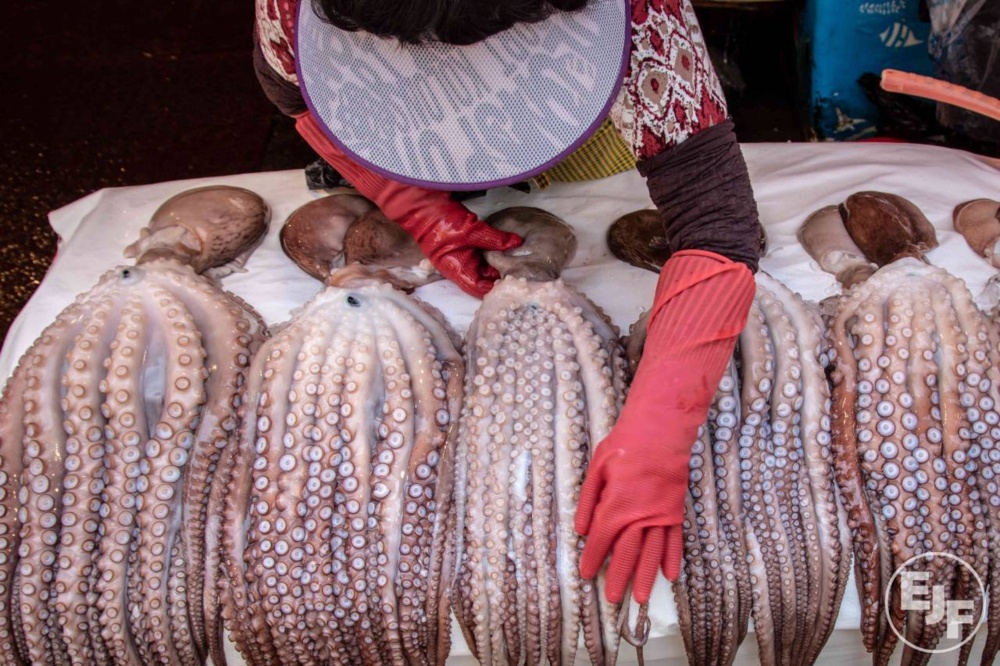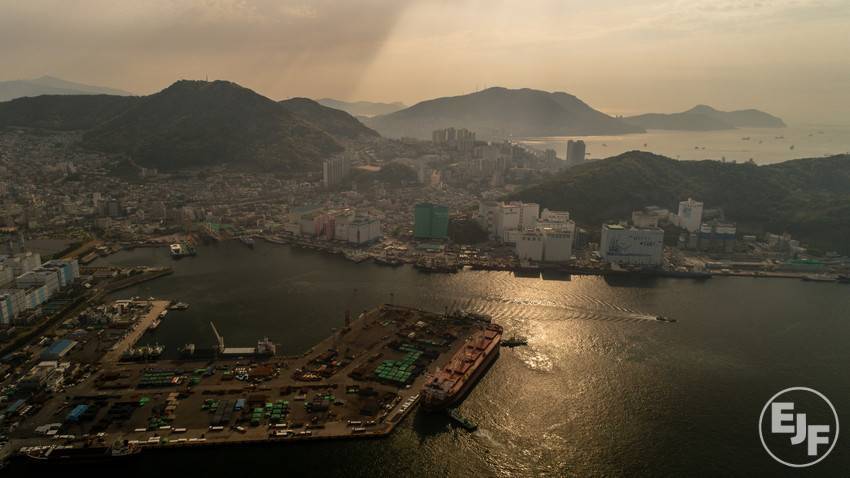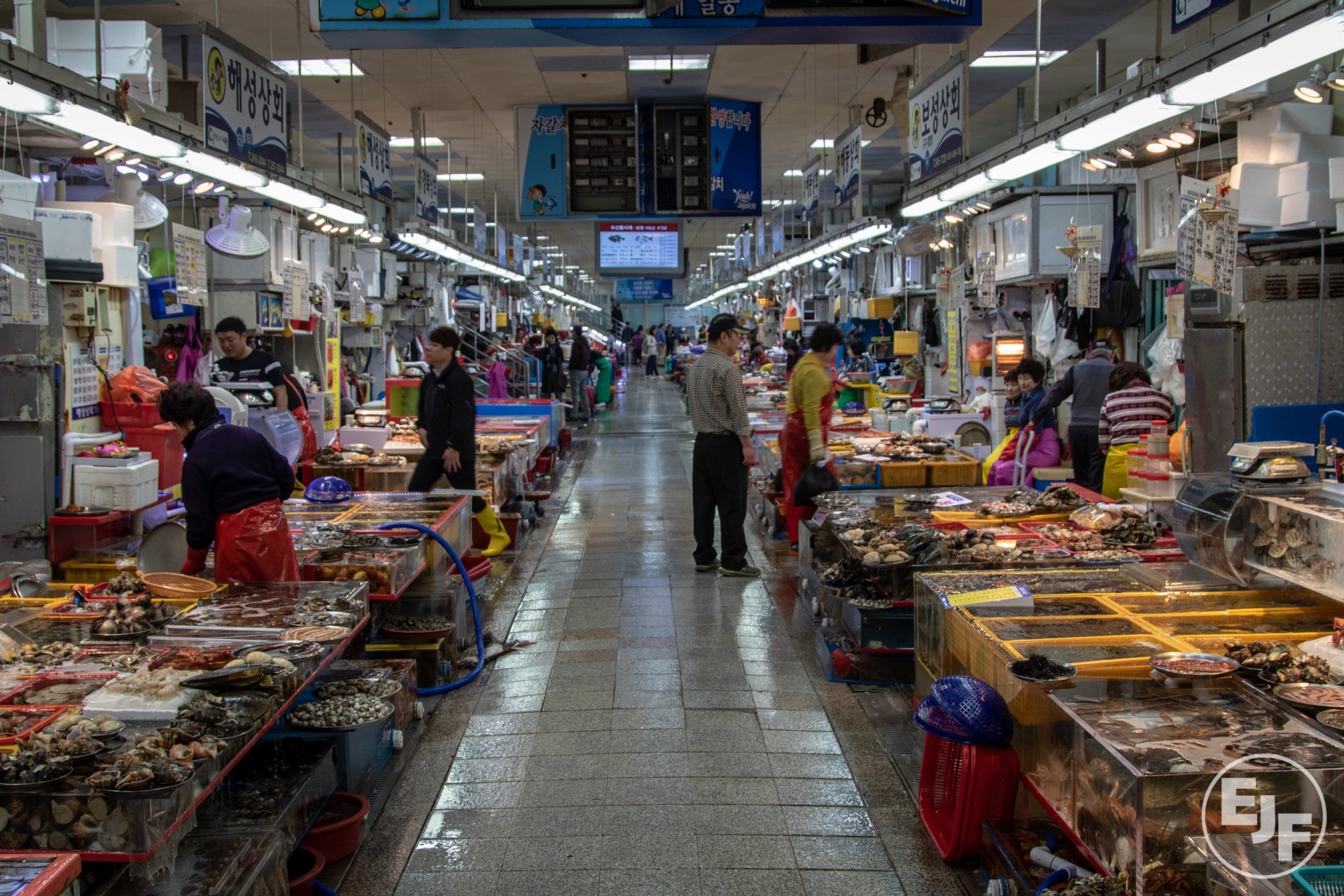
USA lists Korea for illegal fishing: Reforms needed to improve transparency
The USA has put South Korea on a preliminary list of countries engaged in illegal fishing. This is the third time this decade that Korea has been listed by a major economy as a nation associated with illegal, unreported and unregulated (IUU) fishing. It follows a similar listing by the USA in 2013 and the European Union in the same year.
Seven Korean and international NGOs are calling on South Korea to undertake immediate reforms to restore its international credibility. They include the international groups the Antarctic and Southern Ocean Coalition, the Environmental Justice Foundation, Greenpeace Seoul, Oceana and WWF and Korea’s Citizen's Institute for Environmental Studies, and the Korea Federation for Environmental Movements.
The listing could result in trade sanctions on Korean seafood exports if immediate reforms are not undertaken. It is also a serious blow to the reputation of a country that previously made efforts to reform its distant water fleet in response to prior international listings.
A key reason for this most recent listing is IUU fishing activities carried out by two Korean distant water fishing vessels in 2017 that violated conservation measures of the Convention for the Conservation of Antarctic Marine Living Resources (CCAMLR), an international fishing body established to protect pristine Antarctic waters.
Korean and international NGOs expressed strong concern over the case and its subsequent mishandling by government authorities. Despite commitments made to CCAMLR, Korea’s legal framework has not enabled authorities to sanction vessels engaging in IUU fishing, allowing the vessel owners to sell their lucrative catches – caught illegally in Antarctic waters – on the global seafood market. Current laws in Korea do not protect consumers from buying seafood products that originate from IUU fishing, an issue which remains a major threat to the the world’s oceans.
Reforms designed to address the failings in the CCAMLR case are currently before Korean parliament but have not yet been approved. Urgent changes to the country’s sanctioning scheme are needed for authorities to quickly tackle IUU fishing cases. NGOs have also called for reforms to build greater transparency in Korean fisheries, including the publication of important information on vessel identity and IUU fishing offences to publicly accessible databases. Transparency will enable greater public scrutiny and reduce the likelihood of similar cases in the future.
This international setback for Korea comes less than a year after the government signed a joint statement with the European Union pledging to fight IUU fishing globally. Rapid reforms are now needed to prevent other major markets, such as the EU, from joining the USA in scrutinizing the management of Korea’s distant water fleet.
The group of seven NGOs issue the following recommendations to the government:
- Amend Korean laws to include stronger, more rapid sanctions for IUU fishing cases.
- Commit to a rapid increase in transparency and traceability of the fishing sector, including the publication of vessel license lists and vessel sanctions.
- Establish a regulatory cooperation system with industry, including representatives of the civil society organizations, to efficiently and effectively deter IUU fishing.
- Undertake an urgent review of the handling of the CCAMLR IUU fishing cases and make necessary administrative changes in response.
Notes for the editor:
Key facts
- Korea has a distant-water fishing fleet of 221 licensed vessels with an annual export of approximately 200,000 tons.
- The US government’s National Oceanic and Atmospheric Administration (NOAA) lists nations “that the United States has identified for IUU fishing and/or bycatch of protected species and shark catches on the high seas for nations that do not have regulatory measures comparable to the United States.” More information on this scheme can be found at: https://www.fisheries.noaa.gov...
- Korea signed a joint statement with the EU in the fight against illegal, unreported and unregulated fishing in October 2018. Korea is the first country to have responded to being issued a yellow card warning by signing such an agreement.
- In April 2015, the yellow card against Korea was lifted as a result of improved efforts to combat IUU fishing.
- Korea joined the CCAMLR convention in 1985.
- In 2018-2019, Korea has the largest number of vessels (9) allowed to fish in CCAMLR convention areas, compared to any other country.
- Korea is currently chairing the Standing Committee on Implementation and Compliance in CCAMLR.
Contacts:
Daisy Brickhill - EJF Press & Communications Coordinator
daisy.brickhill@ejfoundation.org
Tel: +44 7871 946 911
SIGN UP FOR OUR EMAILS AND STAY UP TO DATE WITH EJF

